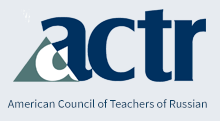Russian Language Journal
Keywords
Russian language teaching, proficiency guidelines
Abstract
Back in 1991, Thompson claimed that the impact of the proficiency movement on how Russian was taught in the United States had resulted in something more akin to Soviet glasnost rather than perestroika. She meant that while the introduction of ACTFL Proficiency Guidelines and an emphasis on functional ability in a foreign language spurred much discussion in the Russian teaching profession in the 1980s, these developments did not lead to “the actual restructuring of curricula and assessment along functional lines” (375). Thompson mentioned several obstacles to the adoption of the proficiency-based approach for Russian teaching at that time, including a lack of communicative, proficiency-based Russian textbooks; the organization of U.S. language programs around “diffuse goals,” such as “developing an understanding of other countries and their cultures” rather than “functional language use” (386); and limited hours devoted to language study in the U.S. educational system.
Recommended Citation
Wallo, Oleksandra and Godwin-Jones, Molly
(2021)
"To OPI or Not to OPI: Proficiency-Oriented Instruction and Assessment in U.S. University-Level Russian Programs,"
Russian Language Journal: Vol. 71:
Iss.
1, Article 8.
Available at:
https://scholarsarchive.byu.edu/rlj/vol71/iss1/8

